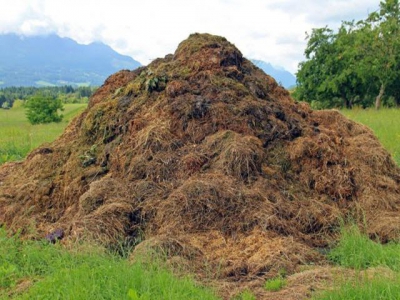Researchers to transform anaerobic digestion

Every year, a staggering amount of organic waste including uneaten food, yard clippings and manure is dumped into landfills, occupying precious land while producing methane and other gases that pollute the atmosphere. For Colorado State University engineers, this 115 million tons of waste represents an opportunity to transform that waste into wealth.
Energy Department grant aims to improve anaerobic digestion process to better transform manure and organic wastes.
A multi-institutional team led by Colorado State has been awarded $5.1 million from the U.S. Department of Energy to develop key improvements in anaerobic digestion a cluster of natural processes by which hungry microorganisms consume carbon-rich organic materials and produce methane and carbon dioxide in an oxygen-free environment, the announcement said.
Over the next five years, the Colorado State team led by Ken Reardon, professor in the chemical and biological engineering department, aims to make technologically sound, economically sensible improvements to anaerobic digestion of organic waste materials in newly designed bioreactors. The team also includes Colorado State researchers Joshua Chan, Susan DeLong and Jason Quinn as well as collaborators at the National Renewable Energy Laboratory, South Dakota School of Mines & Technology and University of California-Irvine.
“Broadly speaking, we want to improve the economic and environmental sustainability of waste treatment by producing a more valuable product and releasing less carbon dioxide,” Reardon said.
The team plans to redesign anaerobic digesters by adding renewable electrons from solar or wind energy to the process. The electrons would redirect how microorganisms break down large organic molecules in things like grass and manure. The team will develop methods for electrons to activate carbon dioxide, produced in anaerobic digestion, to convert the waste into two smaller carbon-chained products: hexanoic acid, which can be upgraded to a fuel precursor, and isobutanol, which can be blended with or upgraded to gasoline.
By directing anaerobic industrial microbiomes and engineered bacteria to make hexanoic acid and isobutanol while limiting production of low-value methane and waste carbon dioxide, the research could seed a new market for anaerobic digestion, the announcement said. Up until now, the process has not been profitable enough to be widely used in the U.S.
Over the next five years, the researchers will integrate their various expertise to making anaerobic digestion profitable -- from altering the microbial communities to designing the bioreactors and performing life-cycle assessments to ensure that the technology will be scalable and profitable, Colorado State said.
Lab reactor experiments will eventually move to a test facility at the South Dakota School of Mines & Technology so the researchers can run experiments more closely resembling a commercial setting.
Related news
 Export of coffee: quantity ranks second, price ranks last
Export of coffee: quantity ranks second, price ranks last Although exports of coffee ranked second in the world, for many years the export value has not been commensurate with the potential.
 Bạc Liêu’s large-scale rice fields prove benefit of economy of scale
Bạc Liêu’s large-scale rice fields prove benefit of economy of scale The Cửu Long (Mekong) Delta province of Bạc Liêu has 26 large-scale rice fields with a combined area of 50,000ha
 Thai policy on rice subsidy is double-edged sword for Vietnam
Thai policy on rice subsidy is double-edged sword for Vietnam The government of Thailand has approved a budget of 21.5 billion baht to ensure a rice price at a reasonable level for Thai farmers